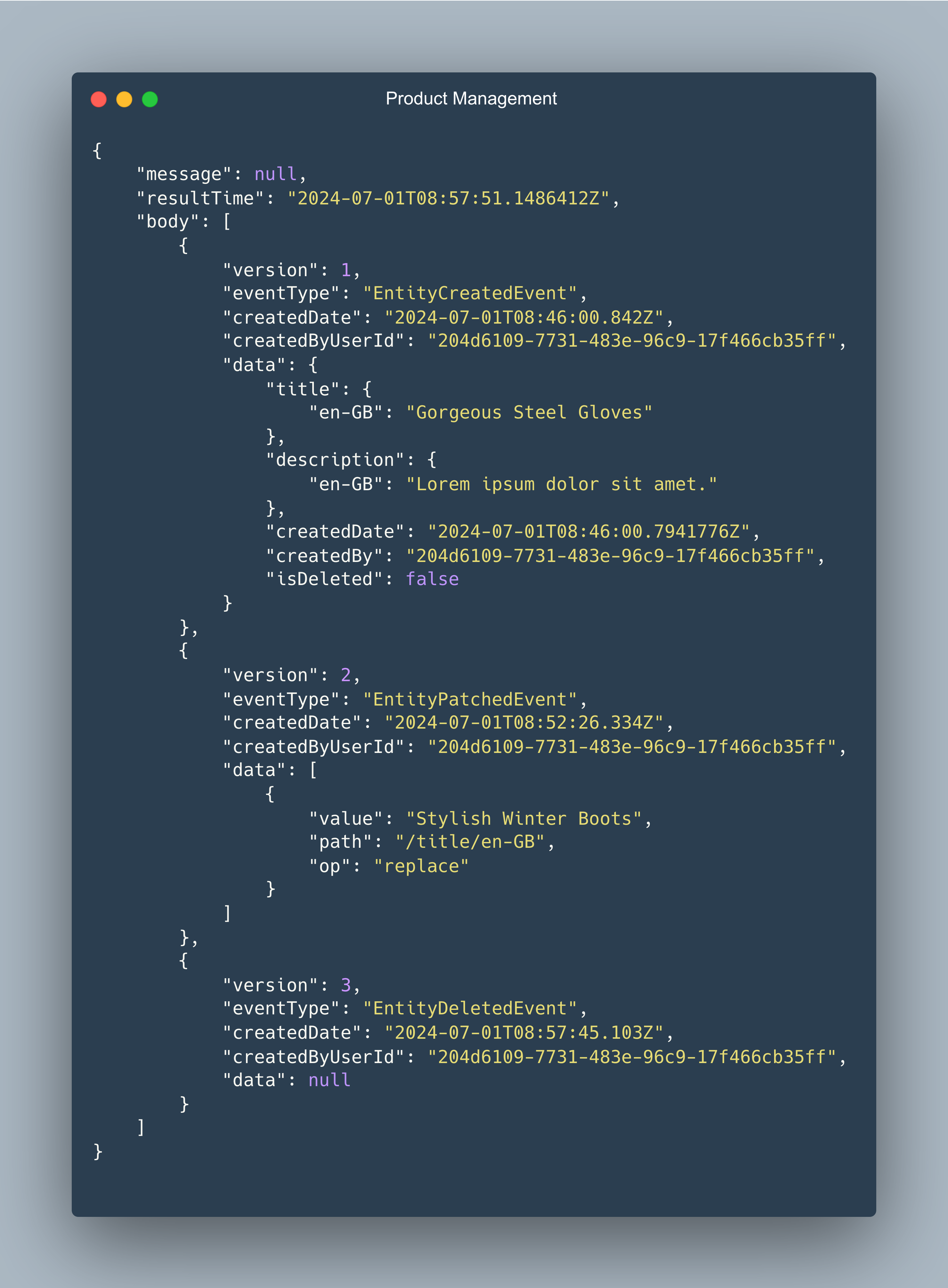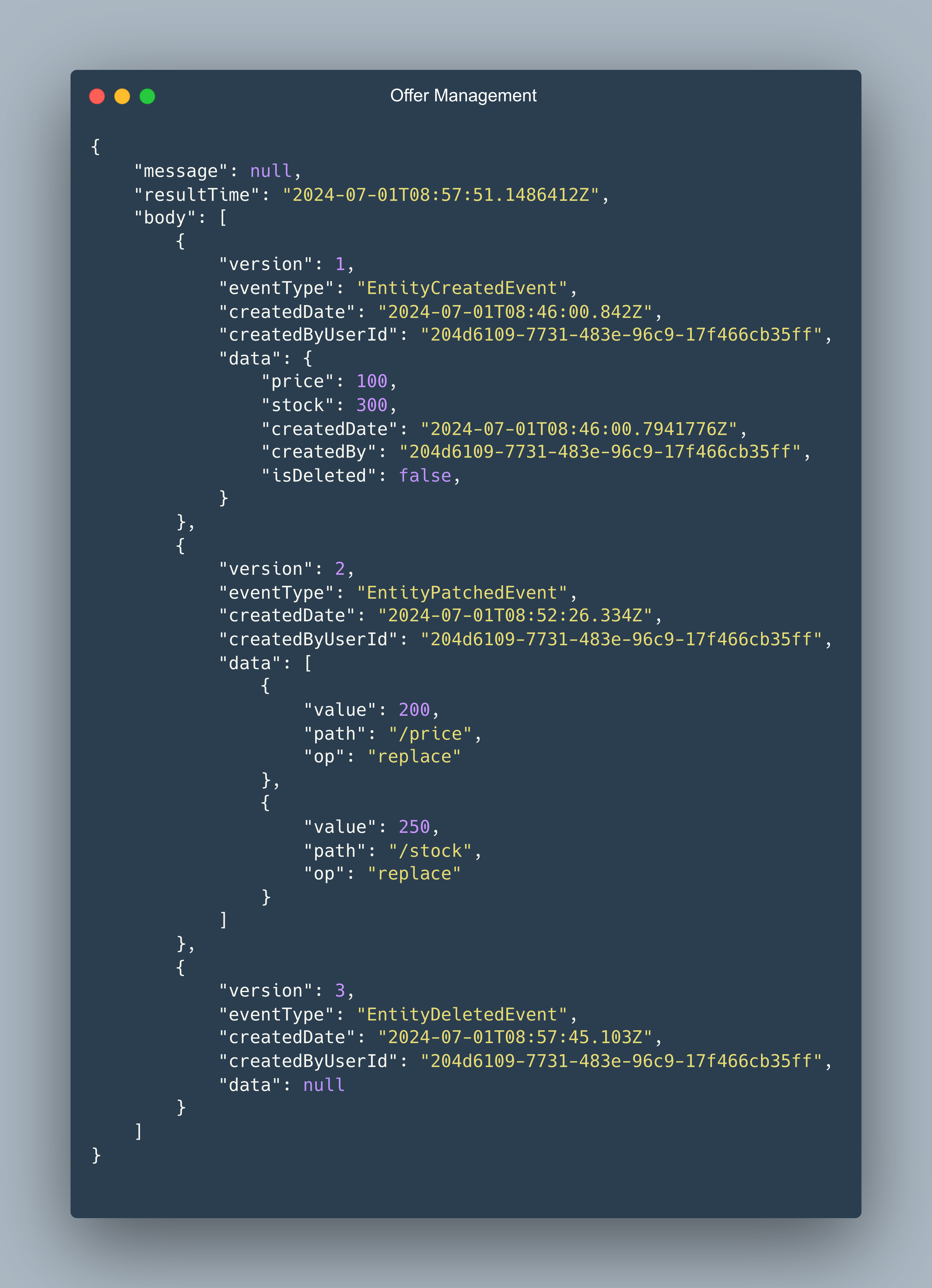Have you ever faced a situation where a customer disputes an order change, and you wished you could effortlessly track every single modification made to that order? Who made the change? When was it made? What were the previous values? What are the new values now?
Or perhaps you have needed to roll back a product update and realized you lacked a reliable history of changes? If these scenarios sound familiar, you are not alone.
Imagine having a tool that not only records every modification but also ensures you are always working with the most current information, all while reducing overhead and improving performance. Welcome to Qilin.Cloud’s powerful features: Object History and Object Versioning.
In the cutthroat world of E-commerce, data accuracy is paramount. But with constant changes, multiple users, and various systems involved, maintaining data integrity can feel like an uphill battle. This blog post unveils the inner workings of Object History, Versioning, and the future-oriented approach of Event Sourcing within Qilin.Cloud. We’ll explore how these features work together to provide a comprehensive data tracking system, empowering you to manage your E-commerce business with confidence.

The Necessity of Object History and Object Versioning
Imagine managing an online store without knowing which product descriptions were modified, when prices changed, or who made those adjustments. This lack of transparency can lead to errors, inefficiencies, and difficulty in resolving customer issues. Object History and Versioning in Qilin.Cloud address these challenges by acting as a digital record keeper for your data: Your very personal E-commerce flight recorder, your blackbox!
Why Object History Matters
1. Auditing and Compliance: In many industries, maintaining a detailed history of changes is a legal requirement. Object History ensures you have an accurate record of modifications, which is essential for audits and regulatory compliance.
2. Debugging and Issue Resolution: When issues arise, understanding the sequence of changes that led to the problem is critical. Object History provides a clear trail of modifications, making it easier to identify and resolve issues quickly. This translates to less processing overhead, minimized resource utilization, and ultimately, reduced costs.
3. Data Analysis: Historical data is invaluable for analysis. By examining past changes, businesses can identify trends, measure the impact of modifications, and make data-driven decisions.
The Role of Object Versioning
Object Versioning complements Object History by providing a straightforward way to detect changes. Each object in Qilin.Cloud has a version number that increments with every modification. This system is essential for:
1. Efficient Data Management: Instead of processing entire objects, applications can check the version number to determine if changes have occurred. This reduces unnecessary data handling, saving time and resources.
2. Change Detection: Knowing whether an object has changed since it was last accessed is crucial for applications that rely on up-to-date information. Object Versioning provides a reliable method for detecting changes, ensuring that your application always works with the latest data.
3. Simplified Conflict Resolution: With version control, you can easily identify and address any potential conflicts that might arise from multiple users attempting to modify the same data simultaneously.
Share your Qilin.Cloud Success Story
Event Sourcing: The Backbone of Object History and Object Versioning
Implementing Event Sourcing in Qilin.Cloud
Event Sourcing is a powerful method used by Qilin.Cloud to manage Object History and Object Versioning. It involves capturing every change made to objects as events. Event Sourcing captures every single action performed on an object, creating a comprehensive event log. This is not just a record of ‘what’ changed, but also ‘when’ and ‘who’ made the change. Here’s how it works:
1. Entity Definition: For each domain entity, there are two primary collections in the database:
- [EntityName]: Stores the current state of the entity.
- [EntityName]EventStore: Stores all events related to the entity.
2. Event Types: Qilin.Cloud uses three types of events to capture changes:
- EntityCreatedEvent: Generated when a new entity is created.
- EntityPatchedEvent: Records updates or patches to the entity.
- EntityDeletedEvent: Used when an entity is deleted, preserving the deletion action in the event store.
3. Version Field: Each entity has a version field that increments with every change. This field helps track the state of the entity at any given time.
Practical Examples of Event Sourcing
Example 1: E-commerce Product Management
Imagine you run an e-commerce platform and need to track changes in your product catalog. With Qilin.Cloud’s Object History and Object Versioning, this process becomes streamlined and efficient:
- Product Creation: When a new product is added to your catalog, an EntityCreatedEvent is generated, and the version number starts at 1.
- Product Updates: If the product details, such as title or description, are updated, an EntityPatchedEvent records this change and the version number increments to 2.
- Product Discontinuation: If the product is discontinued, an EntityDeletedEvent is logged, and the version number increments again.

By querying the event store, you can retrieve a detailed history of the product, including when it was created, updated, and discontinued. This capability is invaluable for inventory management, auditing, and understanding product lifecycle and performance.
Example 2: Offer Management
Consider a scenario where you manage various offers in your warehouse, such as discounts, bundle deals, or special promotions. Keeping track of these offers, including their start and end dates, conditions, and adjustments, is crucial. With Qilin.Cloud:
- New Offer Creation: When a new offer is created, an EntityCreatedEvent is generated, and the version number starts at 1.
- Offer Updates: If the details of the offer, such as price or stock, are updated, an EntityPatchedEvent records this change and the version number increments to 2.
- Offer Discontinuation: If an offer is discontinued or expired, an EntityDeletedEvent logs this action, and the version number increments again.
Using Object Versioning, your offer management system can quickly check if offer details have changed by comparing version numbers. If the version number has increased, it retrieves the latest changes, ensuring that the offer data is always current without processing unnecessary information.

These practical applications of Event Sourcing in Qilin.Cloud demonstrates how Object History and Object Versioning can provide clear, actionable insights, streamline operations, and enhance overall business efficiency.
Business Benefits of Object History and Object Versioning
While the technical advantages of Object History and Object Versioning are evident, these features also offer significant business benefits:
1. Enhanced Data Integrity: By meticulously tracking every change, businesses can ensure the accuracy and integrity of their data. This is particularly important for compliance with regulations and standards in various industries.
2. Simplified Rollbacks: With a detailed event log, reverting to previous object states becomes a breeze. This is particularly valuable in situations where errors are identified, or changes need to be rolled back for any reason.
3. Improved Decision-Making: Access to detailed historical data enables better decision-making. Businesses can analyze past changes to understand trends, identify issues, and make informed decisions. For instance, understanding how product prices have changed over time can inform pricing strategies.
4. Reduced Operational Costs: Processing only the necessary changes minimizes resource usage and reduces operational costs. By avoiding the overhead of handling entire objects when only small parts have changed, businesses can achieve more efficient operations.
5. Streamlined Development: Developers can leverage the history and versioning features to create more robust and reliable applications. This results in a smoother development process and faster time-to-market for new features, with Qilin.Cloud’s comprehensive documentation and APIs, integrating these features into your applications is straightforward.
6. Enhanced User Experience: Accurate and up-to-date data is crucial for providing a positive user experience. Whether it’s ensuring that customers see the correct order details or providing real-time inventory information, Object History and Object Versioning help maintain high levels of data accuracy.
Considerations for Event Sourcing
1. Storage Requirements: Since Event Sourcing captures every single action, it necessitates additional data storage. This is a crucial factor to consider, especially for businesses managing massive datasets.
2. Performance Optimization: Frequent changes and large system sizes can potentially impact performance due to the continuous generation of events. However, with proper optimization strategies, these concerns can be effectively mitigated.
Conclusion
Qilin.Cloud’s implementation of Object History and Object Versioning using Event Sourcing is a testament to its commitment to innovation and efficiency. These features not only enhance technical capabilities but also provide substantial business benefits. By leveraging these tools, businesses can optimize their digital commerce strategy and ensure sustained growth and success.
Incorporating these functionalities into your business processes will not only streamline operations but also position you to adapt quickly to market changes, providing a competitive edge in the dynamic digital commerce landscape. Qilin.Cloud is committed to continually advancing digital commerce by providing a comprehensive suite of features tailored to meet the evolving needs of businesses.

0 Comments